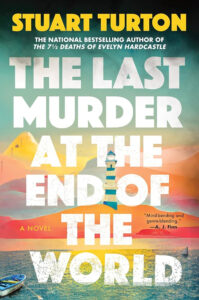
Rating: ★★★★★ (5/5)
Author: Elise Hu
Genre: Nonfiction / Cultural Critique / Memoir
Ideal For: Readers curious about beauty culture, social psychology, K‑beauty trends, and how appearance shapes opportunity globally
Why I Picked Up Flawless
Having lived in Seoul as NPR’s first bureau chief in Korea, Elise Hu witnessed firsthand how lookism—not just image work—became a defining force in modern life. Flawless combines her personal encounter with K‑beauty culture and three years of sharp reporting into one powerful narrative. From its resonance in BookTok to being named NPR’s Book of the Day, I was drawn to this exploration of how beauty standards shape identity and agency, and what happens when perfection becomes work.
Plot Summary (Spoiler-Free)
Elise Hu begins her journey in Seoul, immersed in a world where flawless skin, doe eyes, and V‑shaped jaws are not aesthetic ideals: they’re essentially professional prerequisites. Her narrative weaves together memoir, field interviews, cultural history, and case studies of women and men navigating the huge personal cost of keeping up—physically, financially, emotionally. Along the way, she interrogates lookism, algorithmic beauty standards, and the question: when does self-care become self-erasure?
Why It Works So Well
1. A Nuanced Blend of Memoir and Big Ideas
Not content to stay in the realm of theory, Hu interlaces her own experiences—market pressure to remove freckles, retouched passport photos, unsolicited beauty critiques—with research and interviews. Her tone is curious, empathetic, and never condescending. It almost reads like a conversation with your smartest friend.
2. Deep Reporting & Cultural Context
Flawless opens with a cityscape: Korean skincare aisles, plastic surgery districts, and Seoul’s “bbali‑bbali” (fast‑fast) culture. Hu connects Confucian ideals, post‑colonial identity shifts, and American cosmetic surgeons’ influence on Korean beauty protocols. This context turns the book into a cultural biography as much as a beauty exposé.
3. Asks Hard Questions—and Offers Alternative Vision
Rather than preaching self‑hate or simple rejection, Hu examines “appearance work” and codes of beauty while also spotlighting movements like Korea’s Escape the Corset and older women’s communal body care practices, which embrace aging and freedom. She charts a path not away from beauty, but toward more humane versions of it.
4. Accessible, Fluid Prose
Even sections dense with theory—neoliberal multiculturalism, algorithmic tracking, historical lineage of beauty ideals—are readable and often breezing. Publishers Weekly calls it “nuanced, wide‑ranging, and fluidly written” while others praised its readability akin to “dark humour and personal experience.”
5. Empathy at the Core
Hu repeatedly reminds readers that beauty pressure isn’t just feminist fodder—it’s gendered, classed, radicalised, and even racialised differently. Her treatment of male beauty expectations and the global expansion of K‑beauty underscores that this isn’t one culture’s problem but a symptom of a larger consumerist logic.
You’ll Love Flawless If You Enjoy…
- Crying in H Mart by Michelle Zauner—for cultural identity and intimate storytelling
- Invisible Women by Caroline Criado Perez—for system critique of gendered inequalities
- The Beauty Myth by Naomi Wolf—for feminist scrutiny of appearance norms
Final Thoughts: Insightful, Empathetic, Timely
Flawless is more than a critique of skincare—it’s an examination of time, power, and value shaped around our faces. Elise Hu doesn’t condemn individuals, but she does interrogate systems and invites readers toward a vision that values authenticity over algorithmic perfection.
It’s a five‑star read: richly reported, socially urgent, emotionally empathetic, and unexpectedly liberating. Whether you’re part of the beauty culture or questioning it, Flawless will make you see the reflections (and the price tags) differently.


